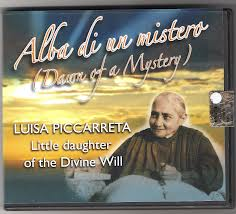It turned a few heads at Mass on Christmas Day when in my homily, among other things, I reiterated a line of Christology dating back to the Fathers of the Church, often formulated as: “God became man, that man might become God.”
Man becoming God? Really? To many ears in the congregation, it probably sounded like a throwback to the New Age movement.
That just goes to show that this truth is as startling today as it was back in the day of Irenaeus, or Athanasius or Leo the Great.
At First Vespers for the Solemnity of Mary the Mother of God on January 1st, the Church prays this antiphon that dates back to the fifth century A.D.:
O marvelous exchange! Man’s Creator has become man, born of the Virgin. We have been made sharers in the divinity of Christ who humbled himself to share our humanity.
O marvelous exchange! In Latin, it’s O Admirabile Commercium, which in later centuries was beautifully transformed into a five-part motet by Palestrina.
The late theologian Franz Josef van Beeck observes that the antiphon “alludes to the condemnation, at the first Council of Constantinople (AD 381) of Apollinarius’ denial of Christs’ human soul…[and] the strong emphasis on Mary and her virginity strengthens the impression that the Latin text goes back to a Greek original composed shortly after the Council of Ephesus” (God Encountered, Vol. 1, 87).
The antiphon is echoed in the prayer which the priest says quietly as he prepares the gifts at the altar at the offertory of the Mass: “By the mystery of this water and wine may we come to share in the divinity of Christ who humbled himself to share in our humanity.”
The “marvelous exchange” here referred to is something that would send the Fathers of the Church practically into ecstasy—and it should have the same effect on us.
It’s a truth that made St. Leo the Great famously exclaim, “O, Christian, remember your dignity, and now that you share in God’s own nature, do not return by sin to your former base condition.” And says the great St. Athanasius:
[God] gave himself to us through his Spirit. By the participation of the Spirit, we become communicants in the divine nature. . . . For this reason, those in whom the Spirit dwells are divinized.
Divinized.
Yes, but not in some New Age sense. The truth, rather, is that in Jesus, divine nature and human nature have been intimately brought together; and this has cosmic consequences for us: it means we can come to share in God’s own divinity.
And ‘O Marvelous Exchange’ has been a way of expressing our excitement about that for nearly sixteen hundred years. It’s an expression that historically emerges from a context in which goods were exchanged by means of a bartering system; ‘commercium’ is the root of our English word ‘commerce.’ Today, we might say, in more earthy language, “O What a Deal!” God becomes man, so that we can become God-like!
As Catechism 460 puts it quoting both Irenaeus and Athanasius:
The Word became flesh to make us “partakers of the divine nature” (Cf. II Peter 1:4): “For this is why the Word became man, and the Son of God became the Son of man: so that man, by entering into communion with the Word and thus receiving divine sonship, might become a son of God” (Irenaeus, Adversus haereses 3.19.1). “For the Son of God became man so that we might become God” (Athanasius, De Incarnatione, 54.3).
And even St. Thomas Aquinas does not shrink from an audacious formulation: “The only-begotten Son of God, wanting to make us sharers in his divinity, assumed our nature, so that he, made man, might make men gods.” He goes on to teach that the foretaste of this divinization in our present state is the experience of sanctifying grace in our lives which is itself, he explains, “nothing other than a kind of shared impression of the divine nature” upon us.
The incarnation of the Son of God does not only mean that God becomes humanly present, in the flesh, in Jesus of Nazareth, but that he gives us a divine calling at our own creation, and a capacitation through Baptism, one day, to attain a destiny that far exceeds the possibilities of human nature considered in itself. In heaven, we will be fully who we were meant to be from all eternity, daughters and sons of God living in intimacy with Father, Son, and Holy Spirit and in the joyful company of all the elect in the bliss of heavenly union for all eternity—that is our “divinization.” And that is at the heart of the Good News about Jesus, and Christmas. O, what a deal!
Imagine what 2014 could be like… if we really let this truth sink in.

